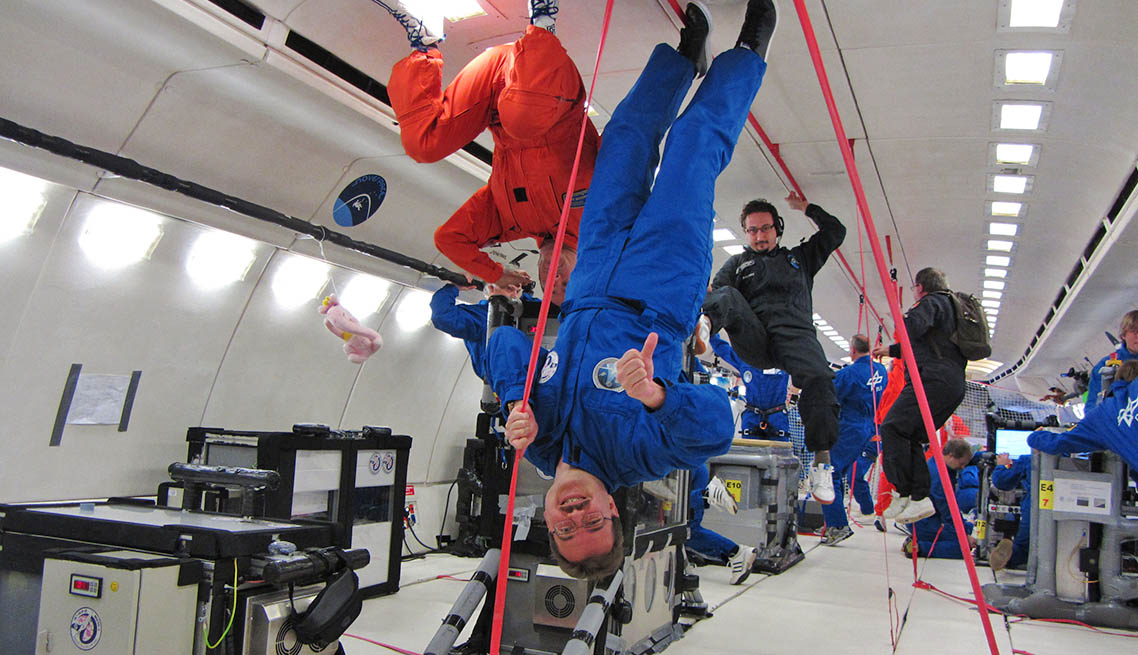Research in microgravity and under aerospace conditions is very limited, not easily accessible, as well as complex and costly. If you want to conduct research in microgravity, you have to apply for experiments either for the International Space Station (ISS), for research rockets or for parabolic flights. Often many months or even years pass before the actual experiment can start. Therefore fast, repeated test procedures as are customary and required in biomedicine, can barely be put into practice with the present repertoire of research options in microgravity.
Research in microgravity with the flying ARES laboratory
With the ARES (Aircraft-based Reduced-gravity Experimental System) project, Prof. Dr. Dr. Oliver Ullrich of the University of Zurich and Captain Dr. Marc Studer, Professional Military Pilot of the Swiss Air Force, have taken a new direction together: Instead of the single annual large-scale experiment with a preparatory period, their approach facilitates many small, quickly repeatable experiments with short lead times. Similar to a normal laboratory on Earth, the tests can now be performed within days or weeks. The Air Force does not incur any additional costs due to this project as the flight manoeuvre with extreme climbs and dives, during which 40 seconds of microgravity are generated, takes place at the start of a regular military training flight. During the parabolic manoeuvre, a test apparatus installed in the fighter jet aircraft “Tiger” automatically performs experiments on living human cells. To this end, a special experiment apparatus was developed, which facilitates the programmable, automatically operated performance of six independent cell culture experiments on board.
A standardised parabolic manoeuvre provides up to 45s of microgravity at a quality of less than 0.05g in all axes. The researchers mainly focus their attention on the malfunction of the human immune system in zero gravity, one of the central issues of crewed spaceflight. In addition, these experiments help to understand whether cells only function properly in the presence of gravity and why.
MSR145 mini data loggers as integral parts of the control module of the experimental system
During the flights, two MSR145 data loggers continuously measure the acceleration in all three axes, as well as the pressure and temperature, both reliably and precisely. The MSR145 data loggers by MSR Electronics are also used for the standardisation and training of the parabolic manoeuvre by pilots of the Air Force. Furthermore, the data loggers are used to carefully monitor the temperature of the transported human cells from the University of Zurich to Emmen Air Force Base.
In addition to the ARES research project, the MSR145 data logger is also used by the team of scientists of the University of Zurich to monitor the acceleration in all three axes during parabolic flights with the Airbus A300 (Bordeaux-Merignac).

